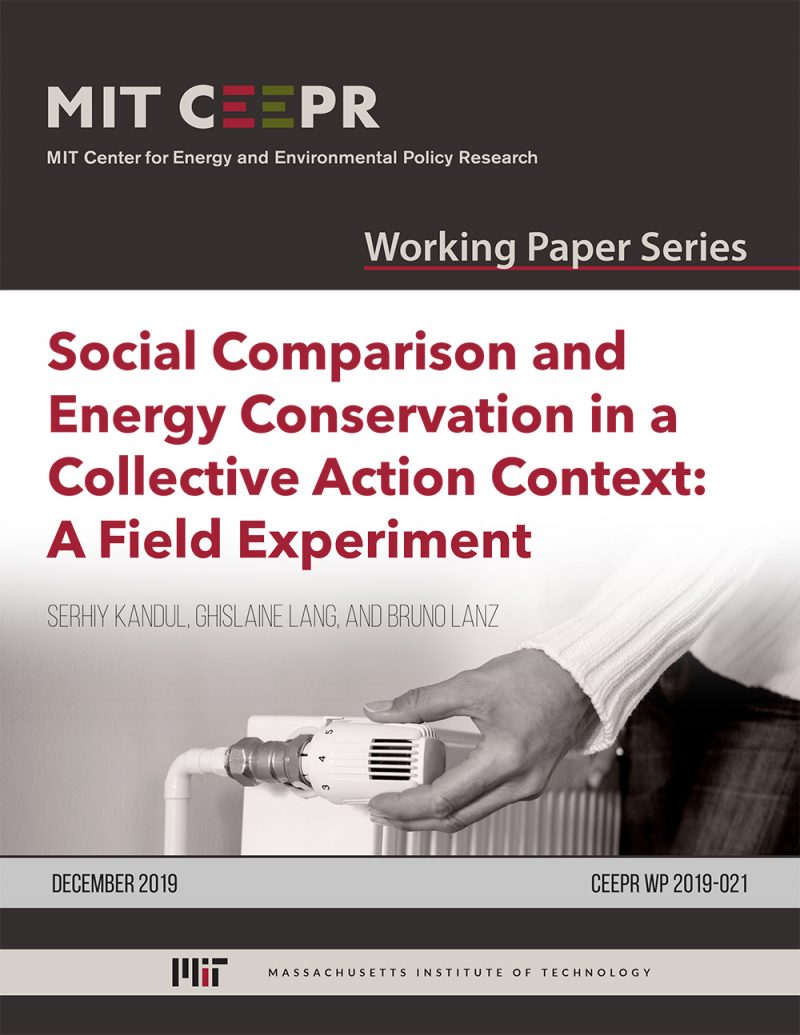Social Comparison and Energy Conservation in a Collective Action Context: A Field Experiment
Serhiy Kandul, Ghislaine Lang, and Bruno Lanz
December 2019
This field experiment quantifies the impact of social norm information on the demand for indoor temperature. Based on high-frequency data from indoor temperature monitors, we provide participating households with a comparison of average temperature in their apartment relative to that measured in a control group. For more than 90 percent of participants, financial benefits of energy savings are only indirect, as building-level heating costs are shared across apartments in proportion to their volume. Despite the associated collective action problem, we estimate that the intervention induces a -0.28°C reduction in average indoor temperature. This suggests that direct monetary incentives is not a pre-requisite for social comparison feedback to induce energy savings.
Keywords: Informational intervention; Monetary incentives; Energy saving; Social comparison feedback; Social norms.
JEL Codes: C91, D12, D62, D91, H41, Q41.



